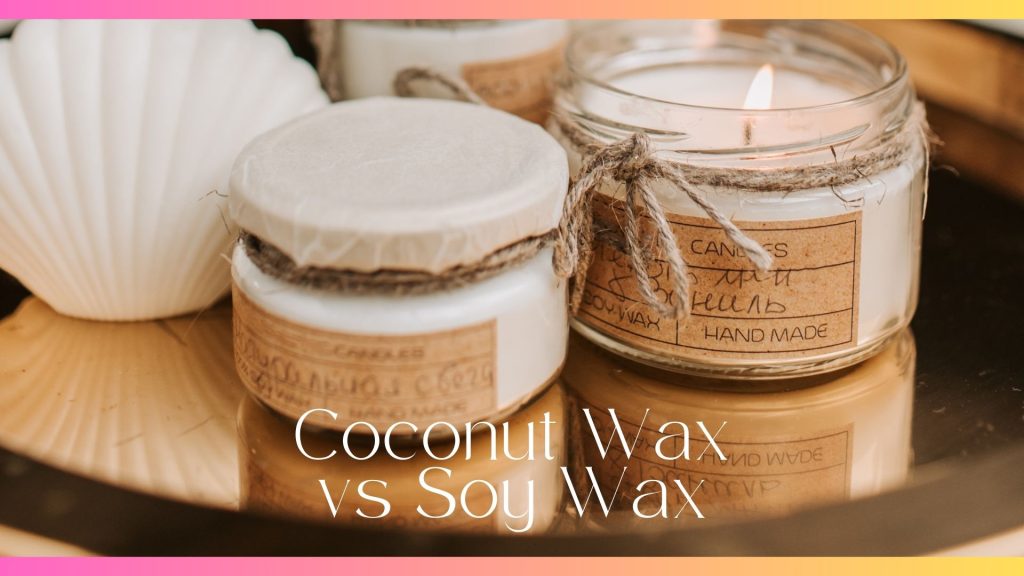Don’t know how to care for candles the right way? These 9 best care practices will help you enjoy your new candles better!
I never understood people’s craze for candles as I never appreciated the art of making them and how to use them best. When I started having some interest in candles (specifically, scented candles) well in my late 20s, I thought learning about proper candle care will help me enrich my candle journey further.
If you feel the same, read on!
In this article, I’ll be sharing 9 ways on how to care for candles so you could prolong the lifespan of your favorite self care accessories.
Disclaimer: This post may contain affiliate links. This means I may earn a small commission (at no cost to you) if you sign up for a program or make a purchase using my link!
Related Posts:
- How Do Scented Candles Work? 4 Things To Know
- How To Use Scented Candles – 8 EASY Steps
- How Long Should You Burn Candles & What Makes A Candle’s Burn Time?
9 Ways To Care For Candles
These are nine best ways you can care for your candles when using them or when not in use. It is not in any order of importance or chronology, so start with what suits you best.
Small steps count!
1. Trimming a candle’s wick
One of the most important step you should take prior to burning a candle would be trimming their wicks. This is especially needed for when you’re burning a candle for subsequent uses (after the first burn).
After burning for a few hours (typically 3 hours in the first burn for jar candles), a candle’s wick can become charred with black mushroom-like formations. To make it simpler for you, this is called “mushrooming” in the industry. Any kind of mushrooming could cause uneven burning and excessive smoking for the next time you’re burning the candle.
To prevent such issues, you should trim the candle’s wick to about 1/4 inch before each use. I’ve stated this in a few of my articles as it is an important aspect that can be overlooked. A clean even burn should reduce the risk of soot buildup and fire hazards!
You can easily trim a candle’s wick using a scissors or you can get a wick trimmer – just make sure it’s evenly trimmed. Wick trimmers are specifically meant for trimming wicks but be sure to do it when the candle’s wax is cool and solid. You wouldn’t want to bend or worse, damage the wick and waste your candle.
2. Removing any debris on surface
Getting a large wide candle can be cost-saving but proper care and storage is needed. For every time you burn a candle, you’ll have to ensure that the surface of the wax is clear of any debris and foreign objects. This includes dust!
Any impurities may interfere with the candle’s flame but you can avoid this by cleaning it with a dry cloth or a wick dipper (can be practical if you have one). Just like the first step I’ve explained above, removing any debris could also minimize the risk of smoking – you wouldn’t want that when using candle indoors.
A clean candle is more aesthetic, if you’re one to prioritize that!
3. Avoiding drafts and wind
It’s one to ensure candles burn evenly, it’s another to ensure that your candles are actually proportionate with even out surfaces (no bumps). Drafts or gust of air/wind could affect candle’s when they’re burning, resulting in uneven surfaces and flickering flames.
Although it’s best to place a candle near windows (for ventilation reasons), you’ll need to ensure that there is no strong wind. Drafts can cause candles to burn irregularly and may increase the risk of accidental fires.
For the same reason, always place your candles on stable, heat-resistant surfaces and avoid moving them while lit. This too helps minimize the risk of spills – hot wax is dangerous!
4. Adhering to the right burn time
Prior to using any kind of candle, be sure to check the manufacturer’s instructions on burn time. Not all candles burn the same and I’ve explained why in a separate article. Stick to what the manufacturer recommends as it should optimize the candle’s performance and lifespan.
Aside from the first burn (where you need to burn long enough to achieve a full melt pool), aim for shorter burn sessions. Burn for no more than 3-4 hours at a time (depends on candle type) and allow your candles to cool completely between each burn (wax is solidified).
Burning candles for extended periods can cause excessive heat buildup, smoking and may lead to overheating or cracking of the candle vessel. You wouldn’t want any of that!
5. Extinguishing a candle’s flame safely
We all grew up putting out candles by directly blowing the flame. However, that’s a wrong move – not only that it can cause smoke (although not a lot), it can also cause hot wax to splatter – not ideal.
The best way to put out a candle and extinguish it safely is to use a candle snuffer. To use one, just put the snuffer over the wick until the flame goes out. If you don’t have a candle snuffer, you can also use a wick dipper by gently pushing the wick into the melted wax.
By doing it the right way, you can prevent wick smoldering, smoking and ensure the candle’s appearance (and scent) stays intact.
6. Storing unused candles properly
It’s not enough to just extinguish your candles and leave it be on the table. Proper storage of used and unused candles is important to preserve its quality and fragrance (if any).
Ensure that your candles are stored in a cool, dry place away from direct sunlight. Any exposure to heat and even light can make your candles fade in color (if they are dyed). The wax and scents can also deteriorate if left too long in these conditions!
Additionally, keeping them in humid moist environments will affect their texture and burning performance. So it’s advised that you don’t place in a washroom or near a pool or pond.
7. Preventing the top from frosting
If you love buying and using candles for their aesthetic value, you have to know about candle frosting. It’s a common problem found in candles, where crystalline patterns form on the wax’s surface due to surrounding temperature fluctuations.
This does not affect a candle’s burning performance but you may find it visually unappealing. To prevent frosting issues, just make sure your candles are placed in a stable environment with consistent temperatures. You should avoid exposing them to extreme cold or heat – or a mixture of the two.
8. Reviving a candle’s scent
Don’t use your candles too often and tend to keep them for very long? Over time, your scented candles can lose their fragrance due to evaporation or exposure to air.
Ideally, you can cover your candles with glass cloche or glass jars to limit the exposure. This is what most retail shops do for their sample candles!
But if you’re already facing the problem, just try to revive your candle’s scent by gently warming them in a candle warmer. You should be able to replenish the scent and enjoy it better with each use.
9. Cleaning to reuse candle jars
An overlooked way to care for candles is to repurpose your candle jars. Don’t throw them out!
Candle vessels can be reused for other purposes including holding your everyday cosmetic products, accessories and even as home decor. To clean candle jars, ensure that any leftover wax has cooled and solidified, then gently scoop them out using a spoon or a butter knife. Your glass jars can be washed using warm, soapy water to remove any wax residue – then dry it thoroughly before reuse.
If you’re a candle maker, you can reuse these old glass jars to make new candles and experiment with new candle recipes. Win-win!
Bottom Line
The nine best practices I’ve explained above are just some of the simpler ways you can care for your candles. The right care techniques can help you enjoy your candles better and use them for longer.
Whether you’re a candle enthusiast, a casual user or a candle maker, these steps will not only ensure a good burning experience, but it also puts your safety as top priority. As it should!


